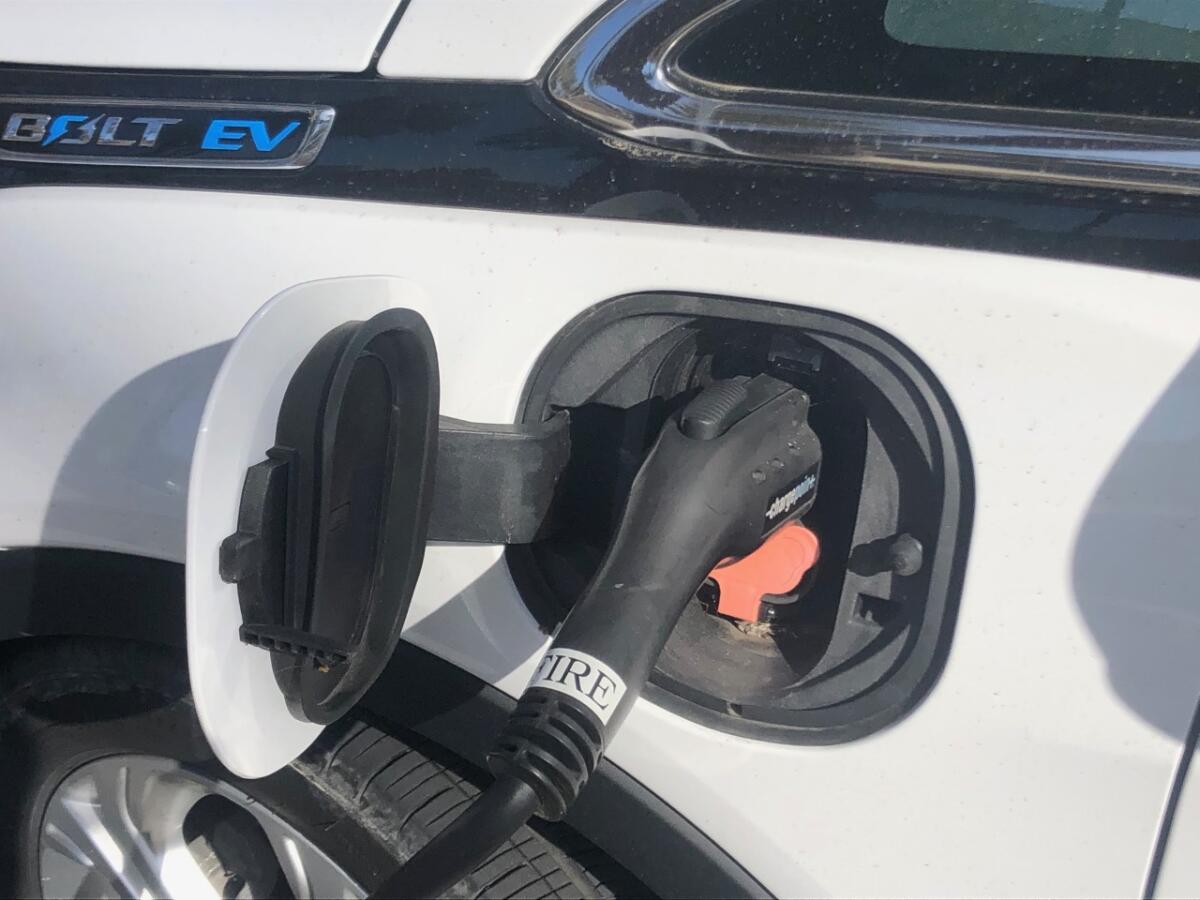Letters to the Editor: Should disaffected EV drivers hold out for better chargers, or go back to gas?

- Share via
To the editor: Mariel Garza’s opinion piece about electric-vehicle charging inconveniences is accurate.
My family is lucky to have two EVS, one a Tesla and the other a non-Tesla. We have taken 15 road trips exceeding 1,000 miles, including as far as Virginia, with no problems. The Tesla charging infrastructure is robust, and more of its stations are opening to non-Tesla EVs.
What Garza describes is early adopter inconvenience, but inconvenience is relative. When we think of the inconvenience our eight grandchildren will experience in a hotter climate, we decide the early adopter inconvenience is worth it.
Hang in there, Ms. Garza.
Michael Selna, Huntington Beach
..
To the editor: Amen to Garza’s lament about the situation of EV chargers.
It’s all well and good that we are pushing EV adoption, but how will it work out if there isn’t a similar push to get more fast chargers rolled out? They are few and far between — often filled, not working at full charging speed or not working at all.
Want to do a road trip into the mountains? Forget about it.
Like Garza, I will likely buy a plug-in hybrid as my next vehicle. Without our state and federal governments taking EV infrastructure seriously, we have to continue to rely on fossil fuel.
Pam Sciarra, Huntington Beach
..
To the editor: The notion that we can just switch cars from gas to electricity reveals the flaws of a climate action strategy that preserves the automobile paradigm. It leaves in place myriad problems such as traffic deaths, the way cars hog roadway space and blight our streetscapes, and the imposition of huge public and private expenses.
Meanwhile, progress on bus and bicycle infrastructure remains slow and tediously incremental.
Bikeway networks in particular deserve more priority and resources. Their rapid, widespread implementation in cities around the world has shown that they can attract legions of users, offsetting the need to drive everywhere. To be effective they must protect riders from traffic and take people where they need to go.
A national bikeway strategy coupled with major funding could be one of our fastest pathways to reducing the impacts of cars and meeting our climate goals.
Kent Strumpell, Los Angeles
The writer is a member of the Los Angeles Bicycle Advisory Committee.
..
To the editor: Why not try hydrogen?
I just purchased a hydrogen-fueled Toyota Mirai, and the fill time is five minutes. Yes, there are fewer hydrogen stations than public EV chargers, but they rely on the same science that took astronauts to the moon, because batteries just don’t hold enough power.
As more stations appear in California, and as we find that battery-powered 18-wheelers take too long to recharge, hydrogen will become the premier fuel of the future.
Stephen Mirkin, North Hollywood
..
To the editor: I have seen at least four different gas stations go up within a 10-mile radius of my home within the last year. Wouldn’t it have been nice if those stations had also installed a few charging bays as well?
If we are going to phase out gasoline, then wouldn’t it be smart for these station owners to start the transition and be able to keep themselves in business when the majority of cars are electric?
Dana Bingham, Apple Valley






